The world today is powered by information technology, making skilled IT professionals highly sought after. With entry-level positions like help desk technician and IT support specialist averaging around $57,000, there’s a clear incentive to get started in this field.
As technology continues to advance and become more integral to our daily lives, the demand for professionals who can set up, configure, troubleshoot, and repair networked devices is on the rise. Obtaining a certification can be a strategic move, validating your skills and making you a more attractive candidate to potential employers.
By acquiring the right certifications, you can demonstrate your commitment to the IT field and your ability to master industry-standard technologies and practices. This not only enhances your career prospects but also opens up opportunities for growth and advancement in the industry.
Key Takeaways
- Discover why certifications are crucial for a successful IT career.
- Explore how CompTIA certifications can validate your technical skills.
- Learn about the growing demand for IT professionals and how certification can help you stand out.
- Understand the value of entry-level IT positions and their potential for career growth.
- Find out how certifications differ from traditional degrees and self-learning.
Why IT Certifications Matter for Your Career
IT certifications play a vital role in shaping your career in the ever-changing IT landscape. As the IT industry continues to grow, the demand for skilled professionals who can demonstrate their expertise through certifications is on the rise.
The Growing Demand for IT Professionals
The IT sector is experiencing rapid growth, driven by technological advancements and the increasing reliance on digital solutions. This growth has created a high demand for IT professionals who possess the necessary skills and knowledge to meet industry needs. According to recent trends, having a certification can significantly enhance your job prospects in this competitive landscape.
How Certifications Validate Your Skills to Employers
Certifications provide objective validation of your skills, giving employers confidence in your ability to perform specific technical tasks according to industry standards. By obtaining a certification, you demonstrate your commitment to professional development and continuous learning, traits highly valued by employers. For more information on essential IT certifications, you can visit Coursera’s article on IT certifications, which provides insights into entry-level and beginner certifications.
By bridging the gap between theoretical knowledge and practical application, certifications show that you can apply what you’ve learned in real-world scenarios, making you a more attractive candidate for job opportunities.
Understanding IT Certifications
To succeed in IT, it’s essential to comprehend the significance of certifications in validating your skills. The IT industry has evolved significantly, and the way professionals acquire and demonstrate their skills has changed accordingly.
What Is an IT Certification?
An IT certification is a credential that validates an individual’s skills and knowledge in specific areas of information technology. It’s a way to demonstrate to employers that you have the necessary skills and knowledge to perform certain job functions effectively.
Self-Learning vs. Degrees vs. Certifications
There are three primary pathways to developing IT skills: self-learning, traditional degrees, and professional certifications. Self-learning provides flexibility but can lack direction. Traditional degrees offer comprehensive foundations but may not keep pace with the latest technology. Certifications, such as those offered by CompTIA, bridge this gap by focusing on specific, job-relevant skills validated through standardized assessments.
Many IT professionals combine these approaches throughout their careers, using self-learning for continuous skill development, certification for validation, and sometimes degrees for advancement into management roles. This combination provides a robust path to career advancement and demonstrates a commitment to staying current with industry developments.
Best IT Certifications for Beginners – CompTIA
Launching an IT career can be challenging, but CompTIA certifications make it more accessible. CompTIA is a well-respected name in the IT industry, offering a range of certifications that cater to different aspects of IT. For beginners, CompTIA provides an excellent starting point, with certifications that cover the fundamentals of IT and beyond.
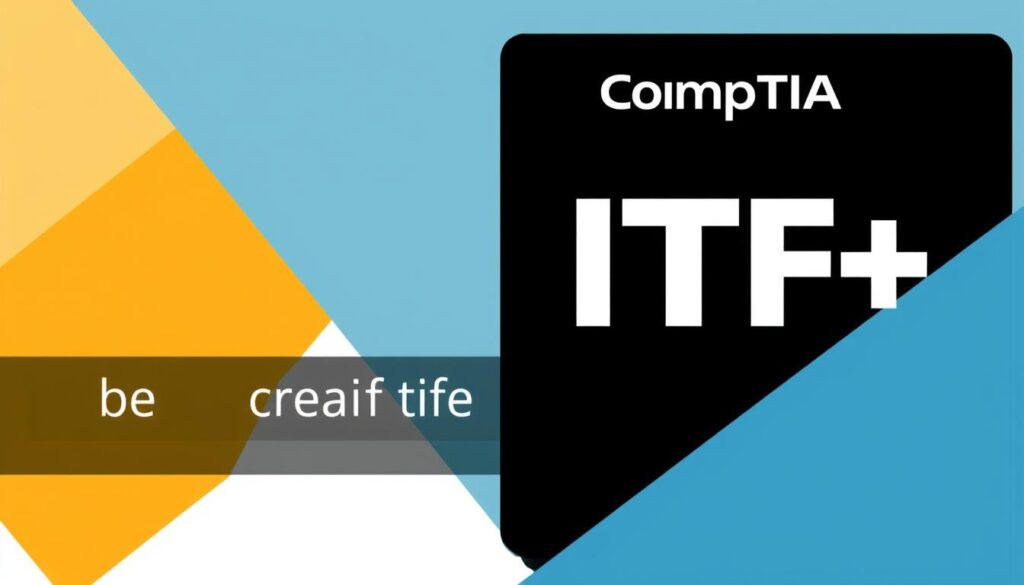
CompTIA ITF+
The CompTIA IT Fundamentals (ITF+) certification is an excellent entry point for those new to IT. It covers the basics of IT, including hardware, software, networking, and security. This certification is ideal for those who are just starting out and want to gain a solid understanding of IT concepts.
Key benefits of ITF+ include: understanding IT concepts, familiarity with hardware and software, and knowledge of networking and security fundamentals.
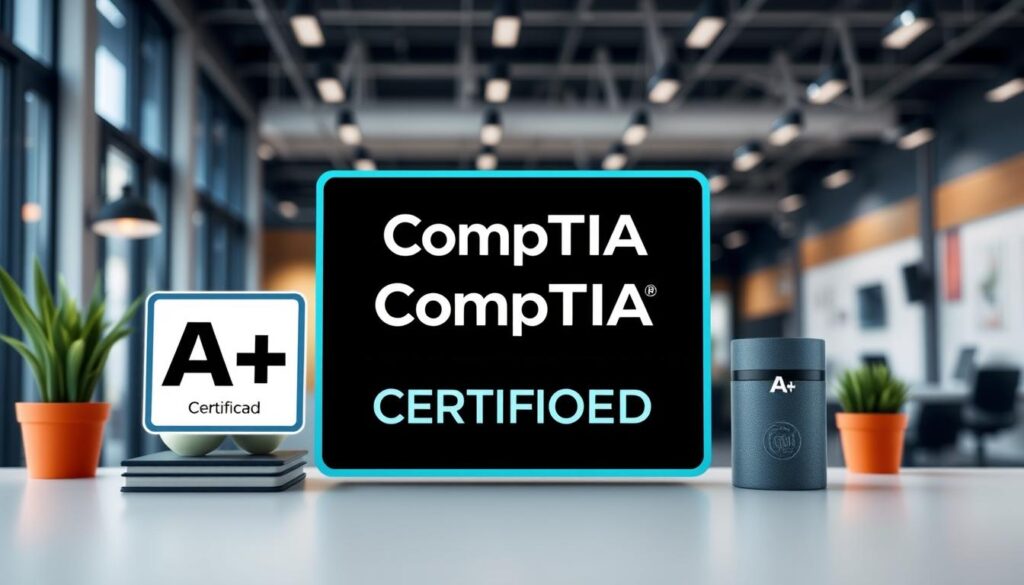
CompTIA A+
The CompTIA A+ certification is one of the most popular IT certifications for beginners. It covers a wide range of topics, including hardware, software, networking, and security. This certification is vendor-neutral, meaning it’s not specific to any particular manufacturer’s products, making it highly versatile.
A+ certification validates your ability to: install, configure, and troubleshoot hardware and software, understand networking concepts, and implement basic security measures.

CompTIA Network+
The CompTIA Network+ certification builds on the foundation of A+ by focusing on networking concepts, protocols, and infrastructure. It’s a vendor-neutral certification, making it applicable across different workplace environments. Network+ is considered a foundational certification in networking principles and is ideal for those looking to specialize in networking.
Network+ certification demonstrates your ability to: configure, manage, and troubleshoot networks, implement network security, understand cloud concepts, and manage network devices.
Other Valuable Entry-Level IT Certifications
Beyond CompTIA, several other entry-level IT certifications can significantly enhance your job prospects. These certifications not only validate your skills but also demonstrate your commitment to potential employers.
Google IT Support Professional Certificate
The Google IT Support Professional Certificate is a highly respected credential that equips you with the skills needed to succeed in IT support roles. This certification covers a wide range of topics, including troubleshooting, customer service, and networking fundamentals.
By obtaining this certification, you’ll be able to demonstrate your ability to provide technical support, resolve customer issues, and work effectively in a team environment.
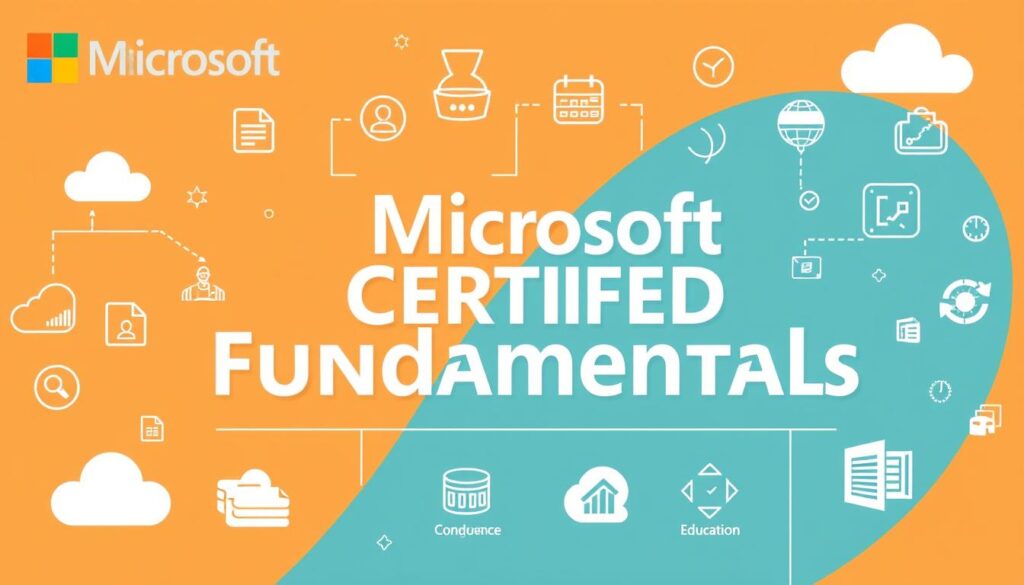
Microsoft Certified Fundamentals
Microsoft Certified Fundamentals certifications are designed for individuals who are new to IT and want to demonstrate their understanding of Microsoft technologies. These certifications cover a range of topics, including Microsoft 365, Azure, and Windows.
By earning a Microsoft Certified Fundamentals certification, you’ll be able to show potential employers that you have a solid foundation in Microsoft technologies and are ready to learn and grow.

AWS Cloud Practitioner
The AWS Cloud Practitioner certification is an entry-level credential that validates your knowledge of cloud computing concepts, including security, compliance, and architecture.
This certification demonstrates that you have a solid understanding of AWS services and can effectively communicate your knowledge to stakeholders.
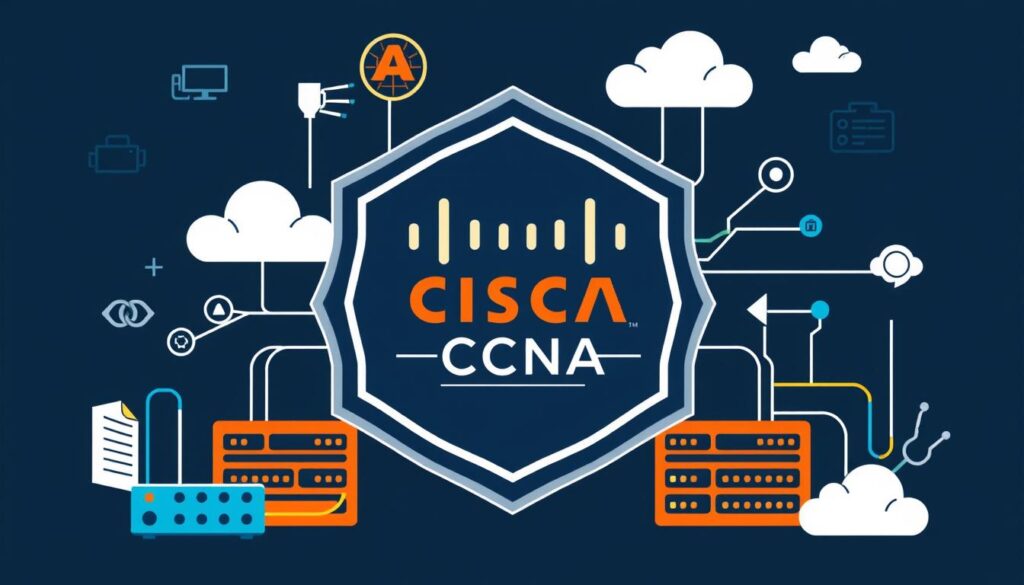
Cisco Certified Network Associate (CCNA)
The CCNA certification is a respected credential in the IT industry that covers the fundamentals of networking, including network access, IP connectivity, and IP services.
By obtaining this certification, you’ll be able to demonstrate your ability to install, configure, operate, and troubleshoot medium-sized routed and switched networks.
The CCNA certification is particularly valuable due to Cisco’s dominance in the networking hardware market, making it a highly sought-after credential among network professionals.
Cybersecurity Certifications for Beginners
Cybersecurity certifications are essential for anyone looking to start or transition into a career in this critical field. As technology advances, the demand for skilled cybersecurity professionals continues to grow, making these certifications a valuable asset for job seekers.
CompTIA Security+
The CompTIA Security+ certification is a widely recognized credential that covers a broad range of security topics, including network security, compliance, and operational security. It’s designed to be a foundational certification that validates your understanding of security concepts and is ideal for those new to the field.
By obtaining the CompTIA Security+ certification, you demonstrate your ability to identify and mitigate security risks, making you a more attractive candidate to potential employers.
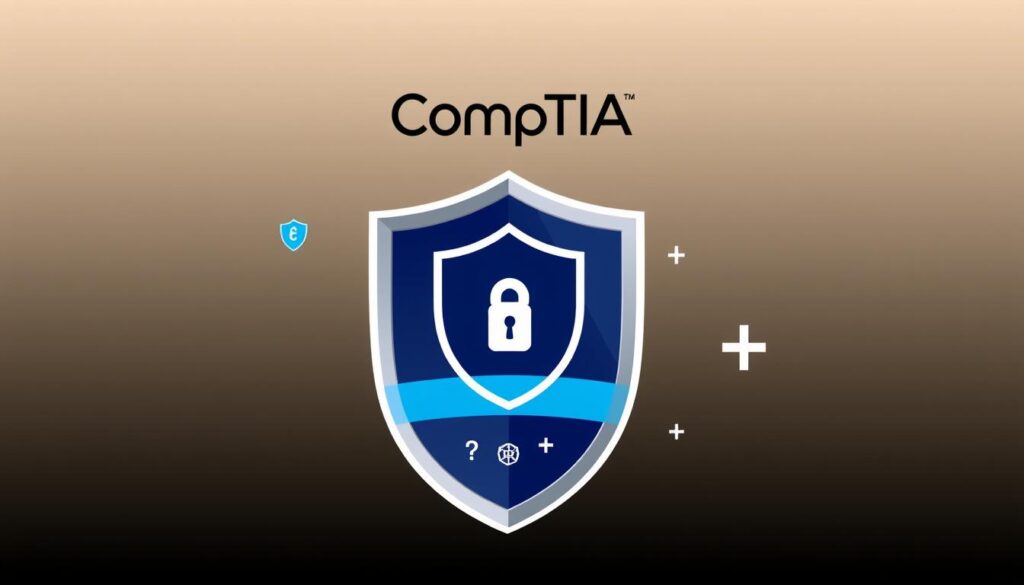
GIAC Information Security Fundamentals
The GIAC Information Security Fundamentals (GISF) certification provides a comprehensive introduction to cybersecurity principles, covering topics such as access controls, authentication, network security, and cryptography. This certification is designed for individuals new to cybersecurity, as well as those who need to understand security concepts, such as system administrators and non-IT security managers.
GISF is developed by the SANS Institute, a respected organization in cybersecurity training and research. It offers a balanced perspective on protecting information systems by covering both defensive and offensive security measures.
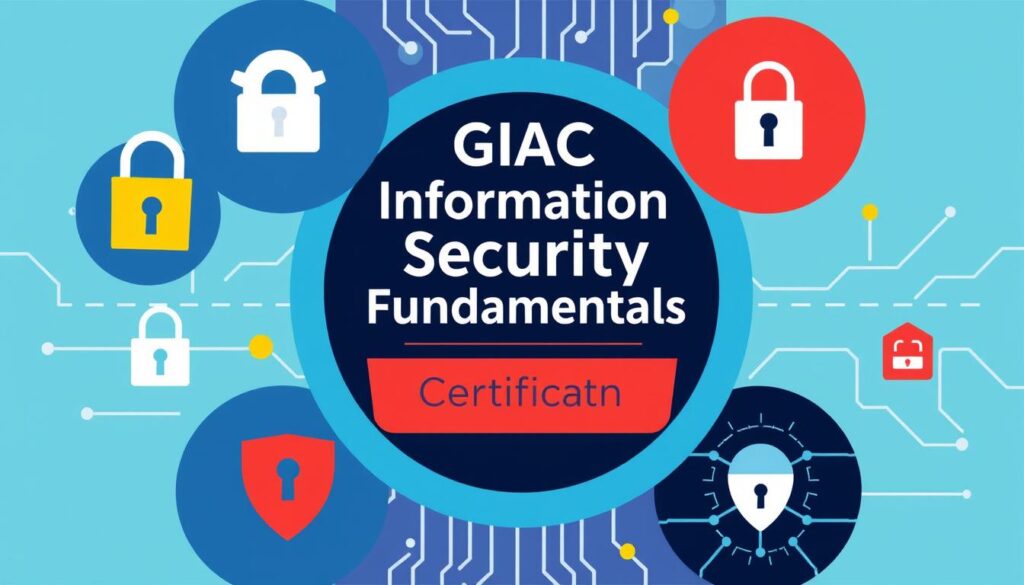
How to Get Your First IT Certification

Acquiring your first IT certification is a crucial milestone that demands a strategic approach to exam preparation. To succeed, you need to understand the process and make informed decisions about your certification path.
Choosing the Right Certification Path
When selecting your first IT certification, consider your career goals and current level of knowledge. Research various certifications to determine which ones align with your aspirations and have the most relevance in the industry.
Training Options and Resources
Once you’ve chosen your certification path, it’s time to prepare for the exam. You have various training options available, including:
- Live online training sessions, such as those offered by CompTIA, which provide interactive instruction from certified experts.
- Self-study resources like CompTIA’s CertMaster suite, which includes interactive lessons, virtual labs, and practice exams to help you assess your readiness.
- Cost-effective alternatives, such as free online resources, community college courses, and employer-sponsored training programs.
To gain practical experience, utilize virtual labs and hands-on practice environments. These tools are essential for developing the skills needed to pass your exam and succeed in real-world IT roles. By choosing the right certification and leveraging effective learning resources, you’ll be well-prepared to achieve your IT career goals.
Career Advancement: Next Steps After Entry-Level Certifications

Earning your entry-level IT certifications is just the beginning of your career journey. As you progress, you’ll find that these certifications open doors to various opportunities for growth and advancement in the IT field.
To continue advancing, consider pursuing intermediate certifications that build upon your foundational knowledge. These certifications can help you develop a deeper understanding of specific areas within IT.
Intermediate Certifications to Consider
After completing your entry-level certifications, you can move on to more advanced certifications. For instance, if you’ve started with CompTIA A+, you might consider CompTIA Network+ or CompTIA Security+. These certifications demonstrate your growing expertise and commitment to your career in IT.
- CompTIA Network+
- CompTIA Security+
- Microsoft Certified: Azure Administrator Associate
Specialization Paths in IT
As you gain experience, you’ll have the opportunity to specialize in a particular area of IT. Some popular specialization paths include cybersecurity, cloud computing, and networking. By focusing on a specific area, you can increase your value to employers and enhance your career prospects.
Specializing in high-demand areas like cybersecurity can significantly boost your earning potential and job security. It’s essential to choose a path that aligns with your interests and strengths while also offering strong growth potential.
Conclusion
Launching a successful IT career starts with the right foundation – IT certifications. You’ve now discovered the most valuable IT certifications for beginners, with CompTIA offerings providing a solid foundation for launching your technology career. By starting with foundational certifications like CompTIA ITF+ and A+, you can acquire the essential skills needed for entry-level IT positions.
These certifications not only validate your skills to employers but also prepare you for more specialized paths in high-demand areas like cybersecurity and cloud computing. As you’ve learned, IT certifications can accelerate your career progression at every stage, from landing your first job to advancing into specialized and leadership roles.
It’s never too early or too late to pursue IT certification, as they provide a structured pathway into a rewarding field with strong job prospects and competitive salaries. By choosing the right certification path, you can customize your learning journey according to your interests and strengths, ensuring long-term success in the ever-evolving technology landscape.
